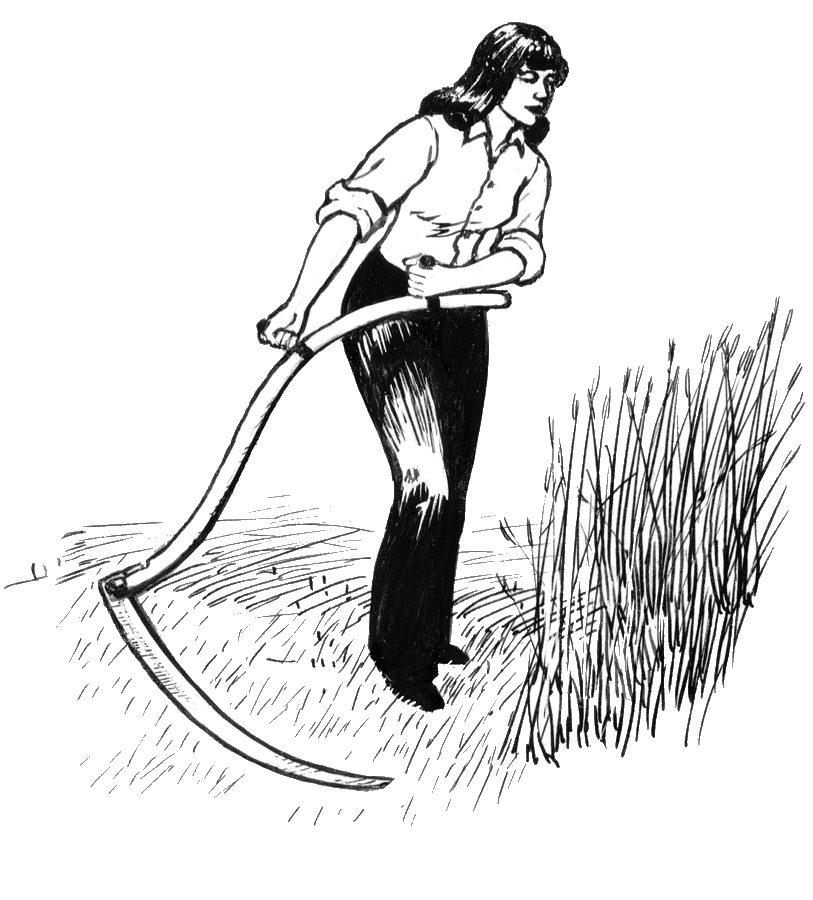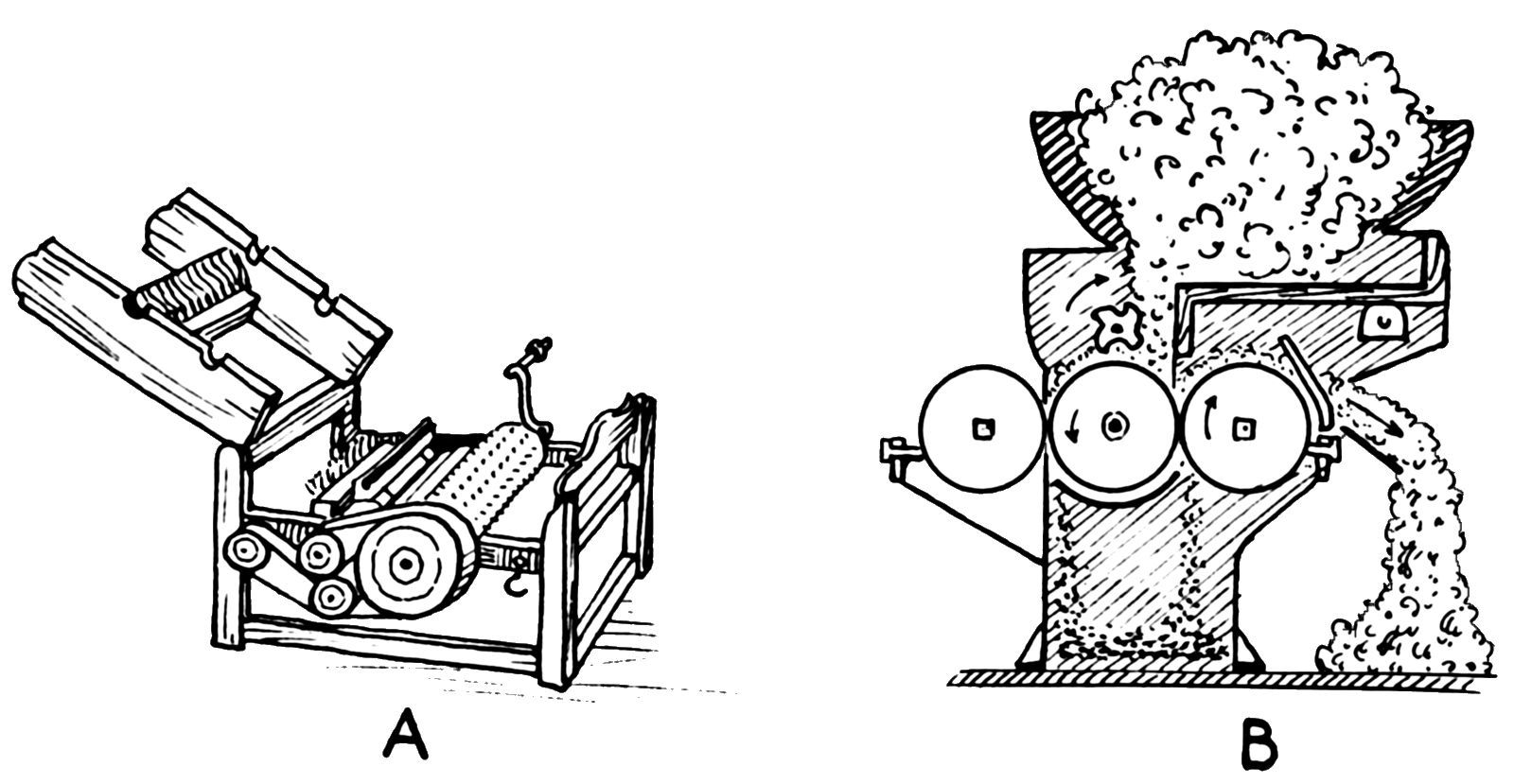Inventions
Inventions

Samuel F.B. Morse invented a telegraph machine. The machine could send messages by tapping on the button. Morse made a code for sending messages. The code is called Morse Code. Wires were set up between cities for the telegraph lines. News could be sent in just a few moments. In 1844 the first telegraph line was completed by Ezra Cornell. It went between Washington DC and Baltimore. Cornell later became the founder of Cornell University.

Another invention was the steel plow. Before the steel plow, the blades on a plow were made of wood. When a steel plow was invented plowing became much easier. Dirt would get stuck to the wood plows. Wood plows were much harder to push or pull through the soil. Steel plows were stronger and made farm work easier.


Cyrus McCormick invented a mechanical reaper. Farmers use a reaper to harvest the grain. Before mechanical reapers, scythes were used to cut the grain. In 1831 McCormick invented a mechanical, horse-drawn reaper. This new reaper allowed a farmer to harvest grain five times faster.
Eli Whitney invented things and developed the idea of interchangeable parts.
 He surprised people in the U. S. Patent Office with his work. One time he demonstrated how interchangeable parts worked. He took apart ten guns and then put them back together by exchanging parts in different guns.
He surprised people in the U. S. Patent Office with his work. One time he demonstrated how interchangeable parts worked. He took apart ten guns and then put them back together by exchanging parts in different guns.
 Others used this same idea to produce many products faster. This method of making things helped factories. It helped them make products faster and helped with mass production. Mass production means to produce or make many parts quickly.
Others used this same idea to produce many products faster. This method of making things helped factories. It helped them make products faster and helped with mass production. Mass production means to produce or make many parts quickly.
The Cotton Gin
In the 1700s producing cotton was expensive. It was hard to remove the cotton fibers from the seeds. It took a good deal of work. At that time, cotton looms were able to make large amounts of cloth. Factories, where the looms were located, were hungry for cotton.
A man named Eli Whitney learned about the problem of getting seeds out of the cotton. He was a mechanical engineer and inventor. At the time, he was looking for work. He was out of money and far from home.
 Whitney decided to work on this problem. Before long he had come up with a new invention. It was the cotton gin. The cotton gin made the work of removing seeds from the cotton much easier and faster.
Whitney decided to work on this problem. Before long he had come up with a new invention. It was the cotton gin. The cotton gin made the work of removing seeds from the cotton much easier and faster.
Before the cotton gin invention, it took 10 hours to produce or make a pound of cotton. With the cotton gin thousands of pounds of cotton could be produced in a day. The year the cotton gin was invented 138,000 pounds of cotton was exported. Two years later 1,600,000 were exported. This was more than 10 times the amount that was exported before. The cotton gin brought big changes to the cotton industry.
Inventions changed the way that Americans lived. They made work easier to do. Inventions made it possible to do things faster. Our country was growing and changing quickly.

Reading resources
© Reading-SocialStudiesSolutions
Text Credits:
http://www.ushistory.org/us/25c.asp;
http://www.ushistory.org/us/25b.asp;
https://corporate.goodyear.com/en-US/about/history/charles-goodyear-story.html;
http://www.ironworkscatasauqua.com/;
http://www.ushistory.org/us/27a.asp - Cotton gin;
https://www.britannica.com/biography/Eli-Whitney - Eli Whitney
Image Credits:
TelegraphKey2 by Damauk- Openclipart.org;
Plow3 from the U.S. Department of Agriculture Seal- Wikimedia Commons;
Scythe by Pearson Scott Foresman- Wikimedia Commons;
Reaper 1845 invented by Cyrus McCormick from Leading American Inventors -Improved grain reaper2- Wikimedia Commons;
Gear parts by Pearson Scott Foresman- Wikimedia Commons;
Trigger mechanism by Encyclopedie Larousse Illustree- Wikimedia Commons
Cotton Gin2 by Pearson Scott Foresman- Wikimedia Commons
 He surprised people in the U. S. Patent Office with his work. One time he demonstrated how interchangeable parts worked. He took apart ten guns and then put them back together by exchanging parts in different guns.
He surprised people in the U. S. Patent Office with his work. One time he demonstrated how interchangeable parts worked. He took apart ten guns and then put them back together by exchanging parts in different guns.
 Others used this same idea to produce many products faster. This method of making things helped factories. It helped them make products faster and helped with mass production. Mass production means to produce or make many parts quickly.
Others used this same idea to produce many products faster. This method of making things helped factories. It helped them make products faster and helped with mass production. Mass production means to produce or make many parts quickly. 



 Whitney decided to work on this problem. Before long he had come up with a new invention. It was the cotton gin. The cotton gin made the work of removing seeds from the cotton much easier and faster.
Whitney decided to work on this problem. Before long he had come up with a new invention. It was the cotton gin. The cotton gin made the work of removing seeds from the cotton much easier and faster. 